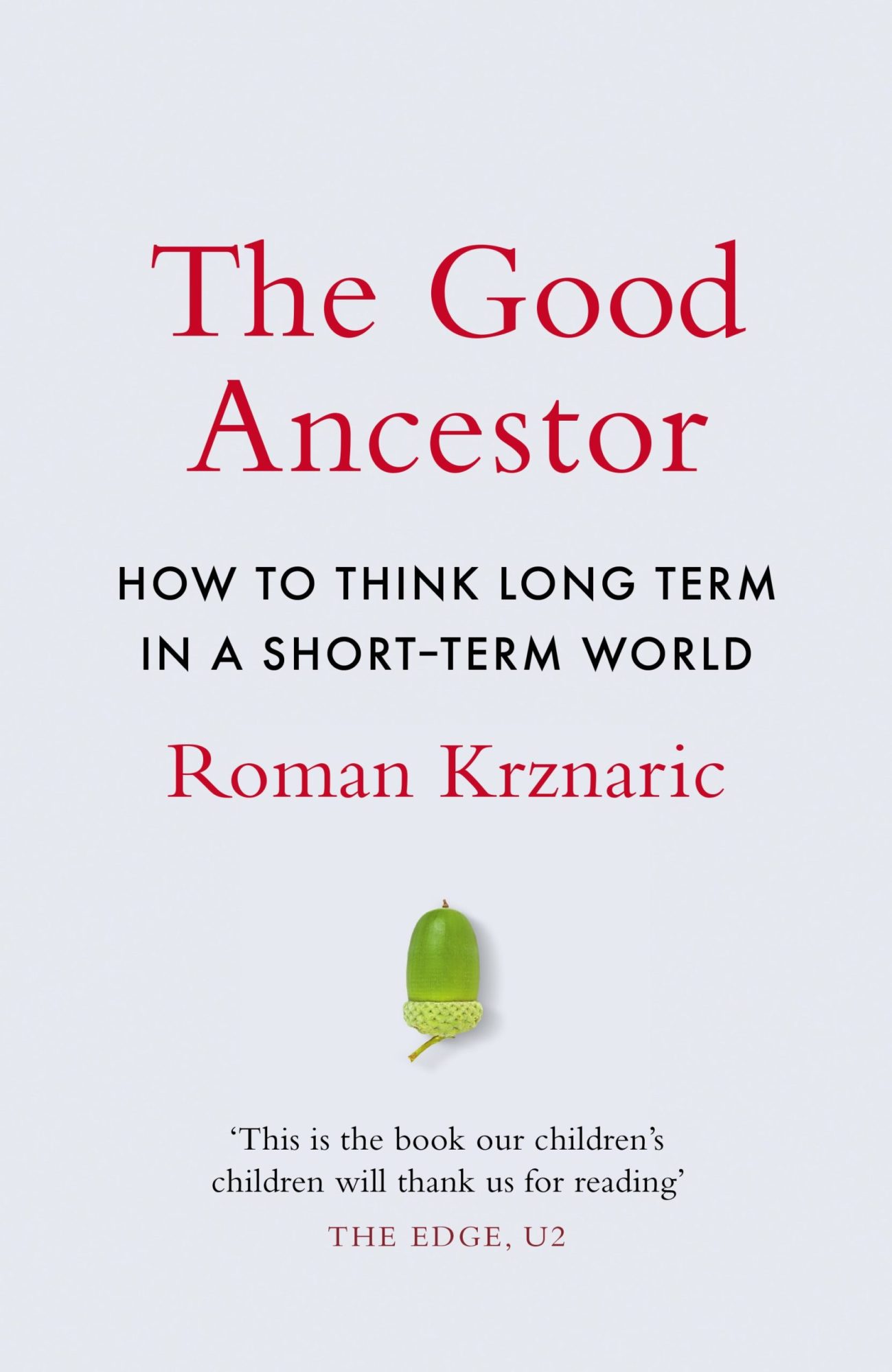“I had been writing books and lecturing and talking about empathy for many years,” says Krznaric, a self-proclaimed public philosopher. “But what I hadn’t thought about so much is this: How do we step into the shoes, not just across the space, but through time–with people in future generations?”
This question guides Krznaric’s book The Good Ancestor: How to Think Long Term in a Short-Term World. It is a volume brimming with ideas about how to combat “our pathological short-termism,” as he calls it. In the age of the “buy now” button, we are collectively failing to acknowledge how climate change, resource overconsumption, and biodiversity loss are sentencing coming generations to live on a chaotic planet.
Empathy toward future generations is a way to think long. One can’t offer a cake, a hug, or words of support to people born in the 23rd century. But gifts and words are not the only means to convey care for another person, and as Krznaric writes, being a good Samaritan is no longer enough. The 21st century requires us to become good ancestors.

The book was conceived and written before the pandemic, and Krznaric only managed to squeeze in a coronavirus–related preface before sending it to print and turning, like many others, to homeschooling kids and rearranging routines. The year quickly became all about evictions, exhausted health workers, police brutality protests, and bankruptcies on Main Street. “In the midst of such an immediate threat, what insights does long-term thinking offer?” he wrote in his preface.
A first lesson, says Krznaric, comes from the way countries with longer-term pandemic plans, like Taiwan or South Korea, have dealt with the virus more effectively than those with none, like the US.
Yet a deeper hint might come from Jonas Salk, the mid-20th-century virologist who coined the question-turned-maxim “Are we being good ancestors?” Salk might have recognized our frantic pursuit of a vaccine against covid-19 and the almost real-time news reports of lab trials, having risen to global fame for developing (and refusing to patent) the first effective vaccine against polio in 1955. Yet Salk always kept the long-term view. “If we want to be good ancestors,” he said in a 1967 speech, “we should show future generations how we coped with an age of great change and great crises.”
Krznaric calls this the paradox of urgency. “In the very immediate moment, we need to be thinking long-term because of the urgency of the climate crisis,” he says. From our vantage point of 2020, it’s impossible to see how well we’ll cope with the multiple crises of climate change, coronavirus pandemic, and authoritarianism. Krznaric is the first to admit it could go either way: authoritarian regimes might try to cling to emergency powers they have granted themselves, while progressive cities like Amsterdam are actively reshaping their economies toward sustainability. Yet in the middle of the hurt and the economic suffering from covid-19, “something has happened to our sense of time,” he says. “It has enabled a moment to take stock.”


